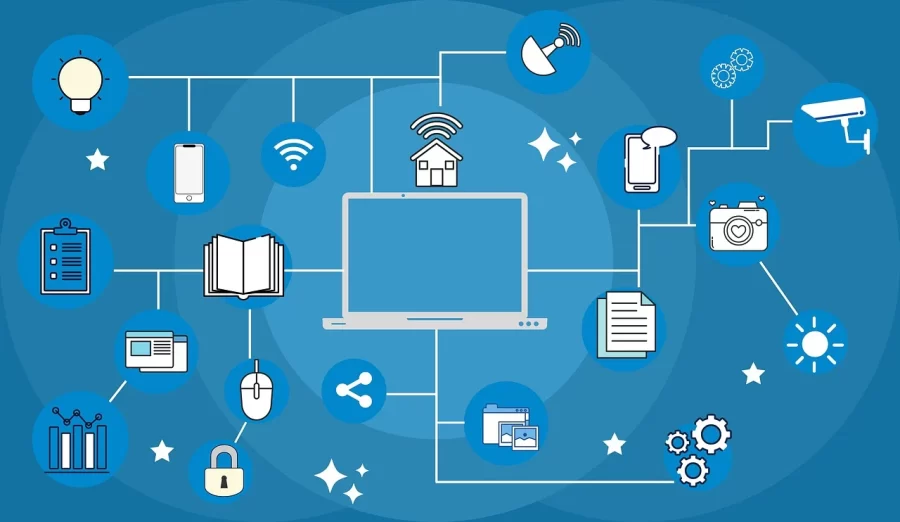Technology: Double-Edged Sword of the 21st Century
April 25, 2023
The 21st century has been the most leisurely era for Americans. For the first time in human history, technology allows people to purchase anything at any given time with the click of a button. Especially after the pandemic, people can work and study from home with unlimited access to every streaming platform right from their couches. They can spiral through social media with the answer to every question at their fingertips. New Artificial Intelligence developments, like ChatGPT, provide comprehensive conversation that can answer almost any prompt and assist users with mundane tasks, such as writing emails, essays, and code. People can communicate with their loved ones instantaneously, travel effortlessly, and make appointments and payments simply by picking up their phones. Although these advanced resources initially seem ideal, Americans are increasingly glum within this period of comfort and relaxation.
While technology contributes to the lavish life Americans partake in, it brings about dismay along with it. The increasing rate of human advancement calls for constant adaptation and adjustment. These fluctuations can range from the newest, most desirable iPhone to the quickly-cycling microtrends. These seemingly never-ending patterns add stress to everyday living, impacting people’s well-being and outlook on life. The false standards created by technology are both exhausting and unattainable. There isn’t a direct set of characteristics that defines the late 2010s or early 2020s simply because there can’t be. Technology’s exponential growth leaves no room for conformity among younger generations since inclination is always shifting. At this growing rate, humans can no longer group trends by decade as they have in years past. While this isn’t necessarily detrimental, it contributes to how technology may be advancing faster than society can handle; at a certain point, the people creating technological advancements may be the only ones who understand it.
The fact of the matter is that technology isn’t going anywhere. Younger people are increasingly becoming more tech-savvy as generations continue to struggle with perpetual technological advancements and people are becoming exceedingly reliant on their phones. Within this path, I believe people can work with technology while making time for life outside of it. Small habits, such as limiting screen time, reading a paper copybook, or making time for a nature walk connect us with our humanity, giving us a break from the stresses of technology. Even having an in-person conversation with someone when you could’ve just texted can help rekindle our well-being. These small habits may seem insignificant, but in this day and age, it is easy to forget the simple experiences in life that ground us.



Carrie Joy Lovett • Oct 29, 2023 at 10:51 am
Thank you for your insightful thoughts on this topic. I very much enjoyed reading your article. I agree wholeheartedly with you that it’s important to take the time to do the seemingly little things like taking a nature walk or talking to someone in person when we could’ve texted. It connects us and grounds us to a part of ourselves that technology just doesn’t satisfy.